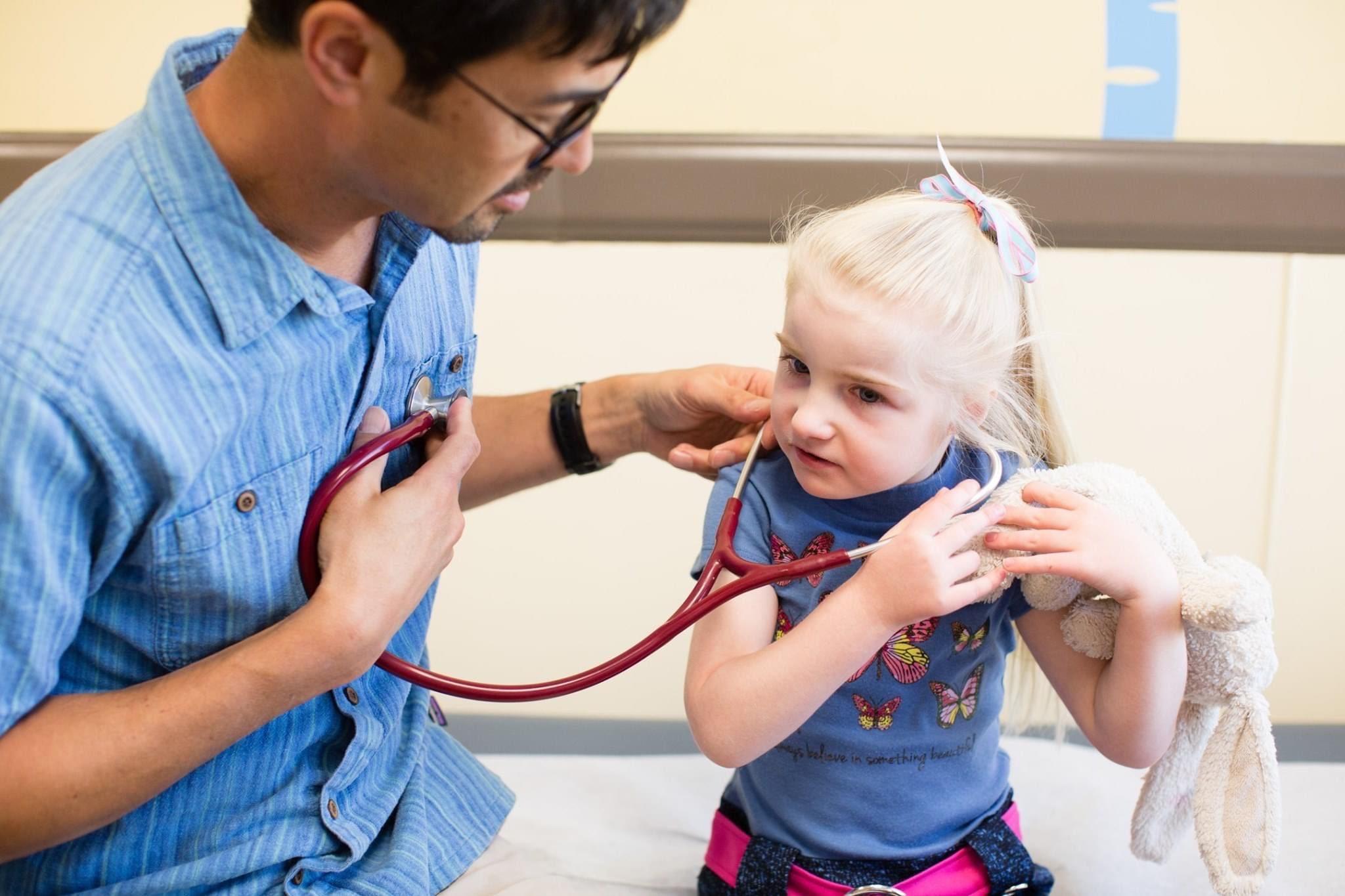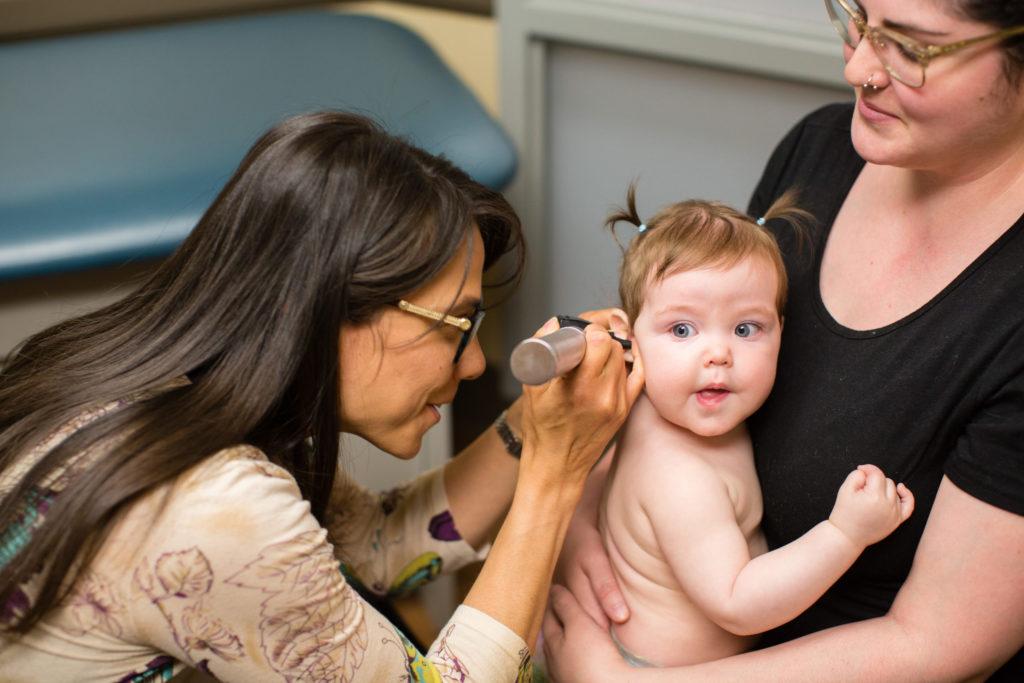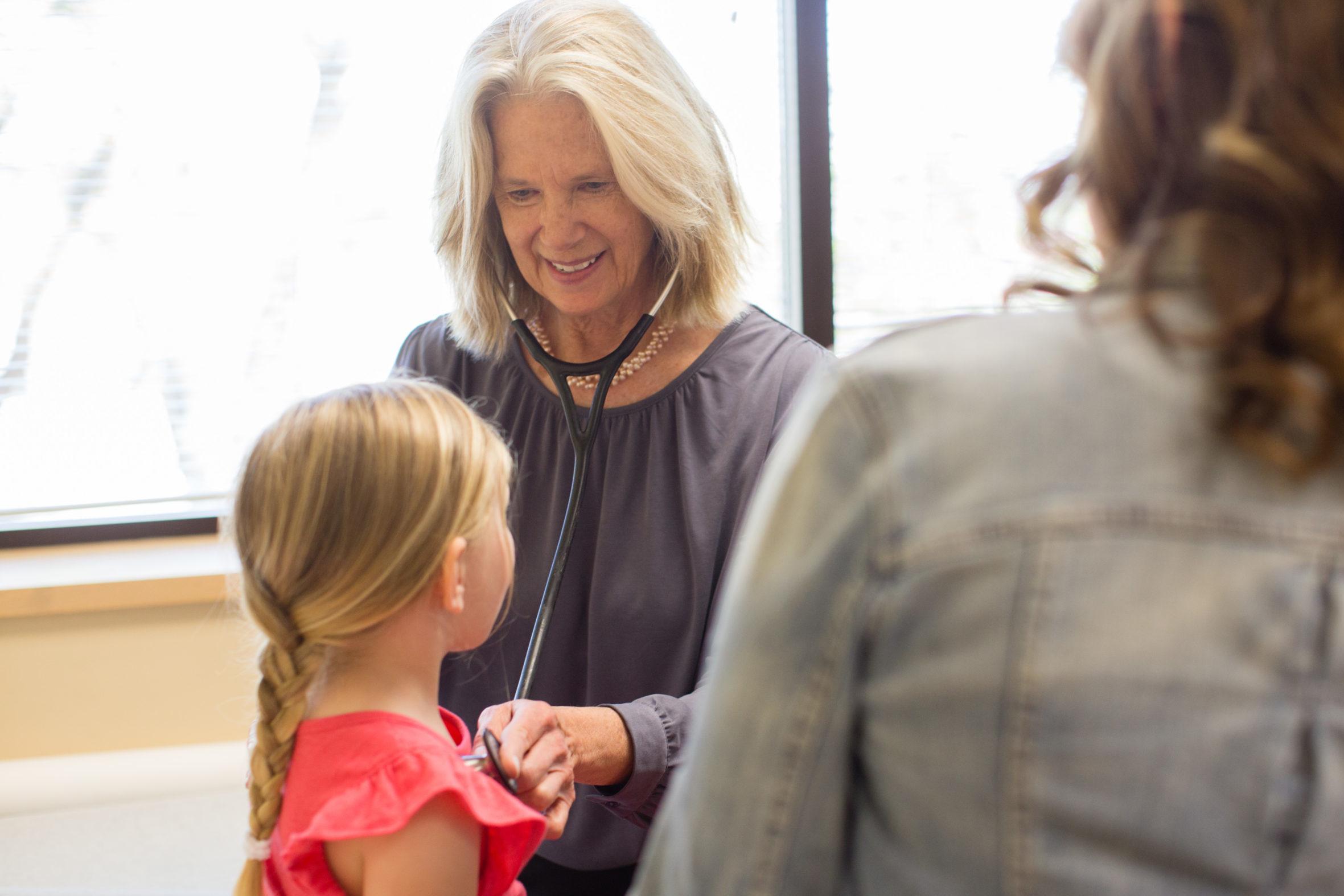
In the normal course of his professional life, Dr. Shen Nagel is used to dealing with crises. Normally, that means children struggling with serious health problems.
The coronavirus curveball he faces now isn't a health-related catastrophe in the making, but an economic one. The pediatrician recently filed an application with the federal government for emergency financial assistance to keep his practice going.
Nagel, who leads Pediatrics West, made the decision after a close examination of his balance sheet and projecting a massive budget shortfall in a few months.
“The thought of coming out at the end of two or three or four months hundreds of thousand dollars in debt just to stay afloat was more than surreal,” he said. “It was pretty frightening, as it is I think for hundreds and hundreds of small businesses all over the place.”
The coronavirus pandemic has many hospitals and emergency departments going a full 24-hours a day, seven days a week. But it’s pummeling many primary care practices, arguably the backbone of Colorado’s health system. Those practices have seen a sharp downturn in visits.

Nagel said families have stayed away in part due to the state’s stay-at-home order and recommendations for social distancing. Or they’re avoiding the pediatric clinic for fear of picking up the virus. The effect is a huge drop off in revenue.
“It's no different than, say, the restaurant industry or other small businesses who are having to close down or try and survive on half or a third of their volumes of normal,” he said.
The problem is not confined to Colorado.
Up and down the U.S. health care system, the coronavirus is having a cruel ripple effect on bottom-line fiscal projections. Health care workers, including some in practices that do elective procedures, face pay cuts and layoffs.
As April opened, Denver Health sent an email that asked hospital staff to consider using their paid time off, reducing their hours or taking leave without pay as the hospital prepared for a financial hit from the pandemic. In March, Colorado’s hospital association sent a letter to the state’s Congressional delegation warning of “hospitals' financial viability.”
Nagel described the experience as a “whirlwind” for Pediatrics West, which has a pair of clinics in Littleton and Wheat Ridge. It’s the medical home for more than 12,000 patients and employs more than 50 people.
Now, he and his colleagues are also focused on another number: $650,000. That’s the amount of money the practice has requested from the federal government, as part of its relief funding called the Payroll Protection Program.
The coronavirus relief fund established new loans for qualifying organizations of fewer than 500 employees. The money aims to help employers like Pediatrics West pay workers and cover other employment-related expenses during the ongoing health crisis.
The crunch has forced Nagel and his practice, with a customer pool that’s about 20 percent Medicaid, to scramble and improvise. They set up one of the clinics to handle sick kids, and the other for what are “well visits,” children who come in for routine care like checkups and vaccinations.
Providers see sick children via telehealth, as well as in the parking lot and a pair of wings of one of the clinics. The practice has reduced its hours and pay for staffers.
“We are committed to not laying anybody off,” Nagle said. Before Congress passed the federal relief package “we talked to staff and we said ‘we were going to have to cut salaries of the providers and the administrative staff at least 50 percent and cut hours on the hourly staff.’ So that's our medical assistants, nurses and front and back staff. But what we committed to the is wouldn't lay anybody off.”
Dr. Yadira Caraveo, a pediatrician with Peak Pediatrics in Thornton and Democratic state representative, described similar conversations at her practice.
“We're actually not seeing a surge in sick cases, it's actually just the opposite,” she said. “We're seeing a drastic decrease in the number of well visits that we usually see, which sounds like that's kind of across the board and in pediatrics across the state.”

Practices and groups representing pediatricians have reached out to lawmakers and the governor’s office to alert them to this new, brewing COVID-related emergency.
“With fewer visits, they're worried that some of them are going to have to close, which if that happens, that's going to put a big dent into our medical infrastructure.”
Both visits and revenues are down by half at her practice, Caraveo said. “It is a big decrease in our revenue. If this were to go on for a year, who knows if we would make it honestly?”
Another long term worry is the impact on both primary care patients and the overall health of the community if clinics end up going under.
The worst-case-scenario Nagle said is this initial wave of coronavirus cases goes on longer than expected and practices will have to deal with decreased patient volumes for months on end, or if federal dollars don’t arrive soon enough, or not at all. His prediction is many practices could go out of business in two to four months, with the pediatric primary care infrastructure left “decimated.”
The same could occur if another wave of coronavirus comes through in the fall, he said. That widely feared scenario is exactly what happened when the Spanish Flu Pandemic hit a century ago.
If many pediatric primary care clinics close, many children, especially some of the most vulnerable, could go without routine care. And many could miss scheduled vaccinations, a major problem for those kids, their families and the broader community. That could result in “other types of public health crises with under-immunized kids and the potential for vaccine-preventable disease outbreaks,” Nagel said. “That's the dark vision of the worst-case scenario.”
The vaccination question is important for Diane Brauch, a registered nurse and clinical manager for Pediatrics West.
“Are we going to be facing some of these childhood illnesses that are going to rear their ugly heads and then we're focused on something totally different, six months to a year down the road where we're looking at a different problem?”
For now, Brauch said, clinic staff will try to keep families informed, reach out to check on kids and call to make sure kids continue to take needed medications.
“Keeping them healthy overall is also going to keep them from getting really sick with something, something just as bad as COVID,” she said.
Nagel hopes for an alternate storyline, where coronavirus cases steadily decline and widespread surveillance testing ramps up, so parents feel confident and secure in bringing their kids back to their pediatricians.
Plus it’s critical the federal relief money comes through, which “allows us to essentially have some cushion to bring our out-of-pocket expenses down,” he said. “That’s probably the best-case scenario.”








